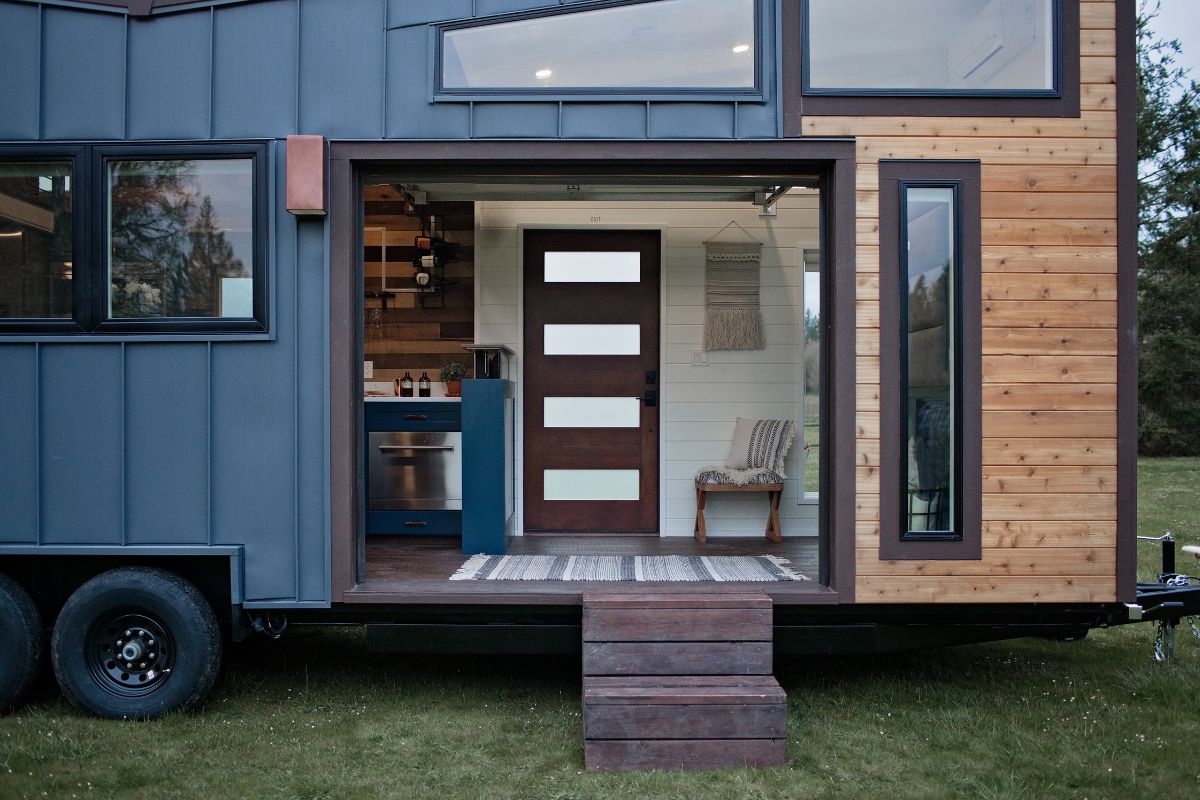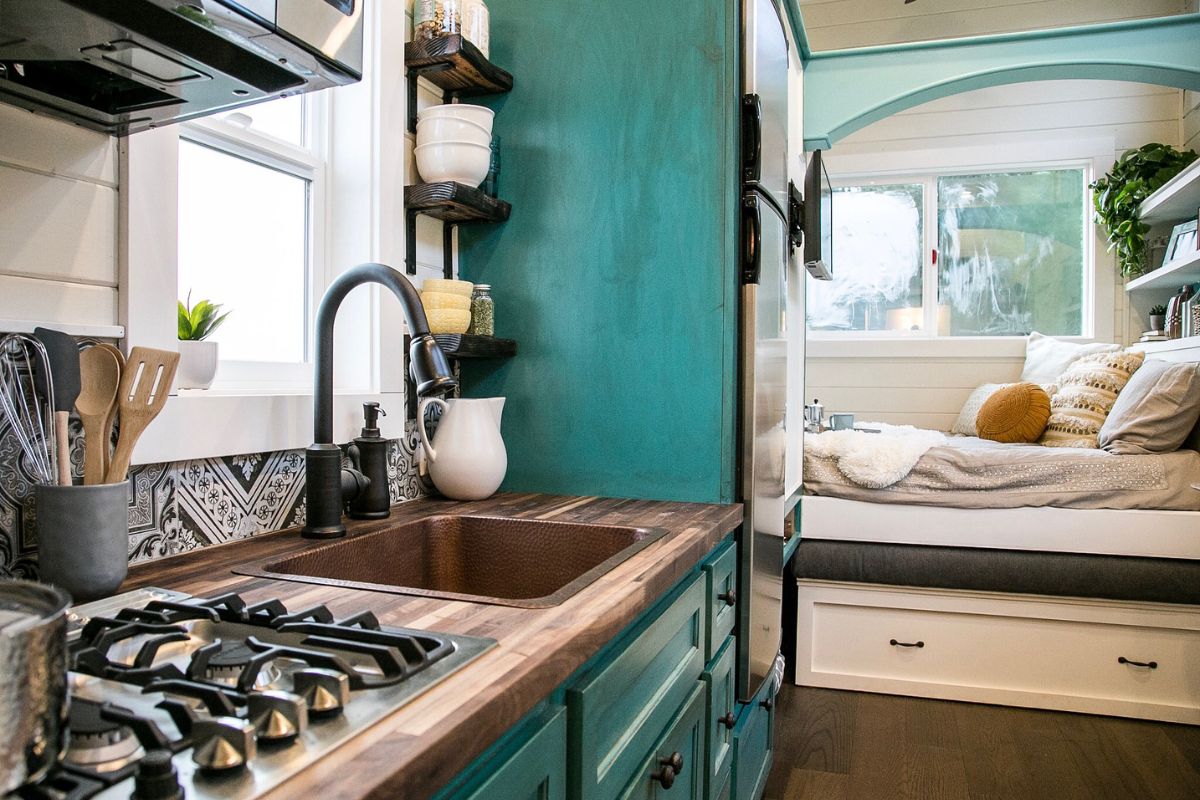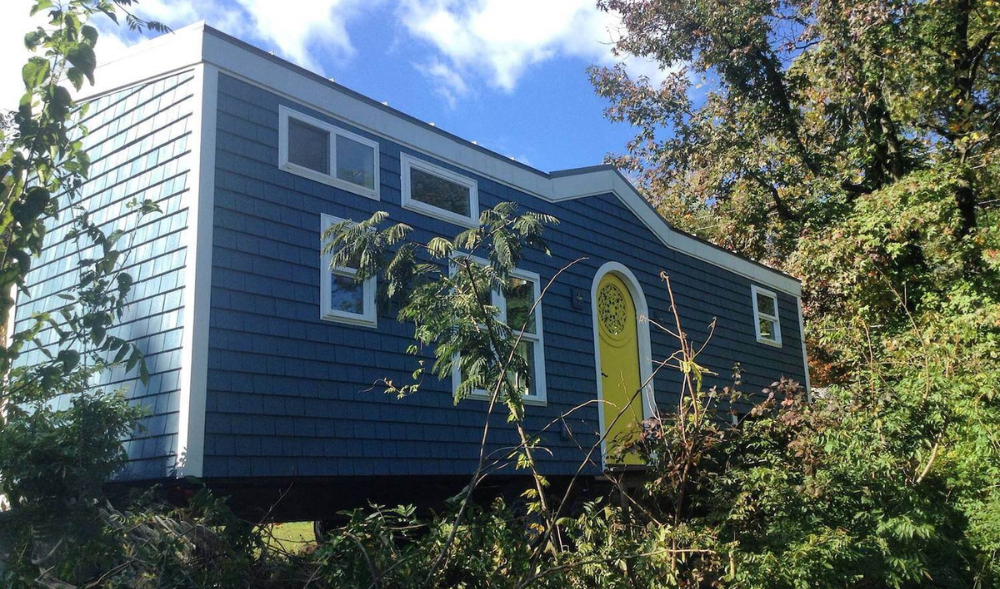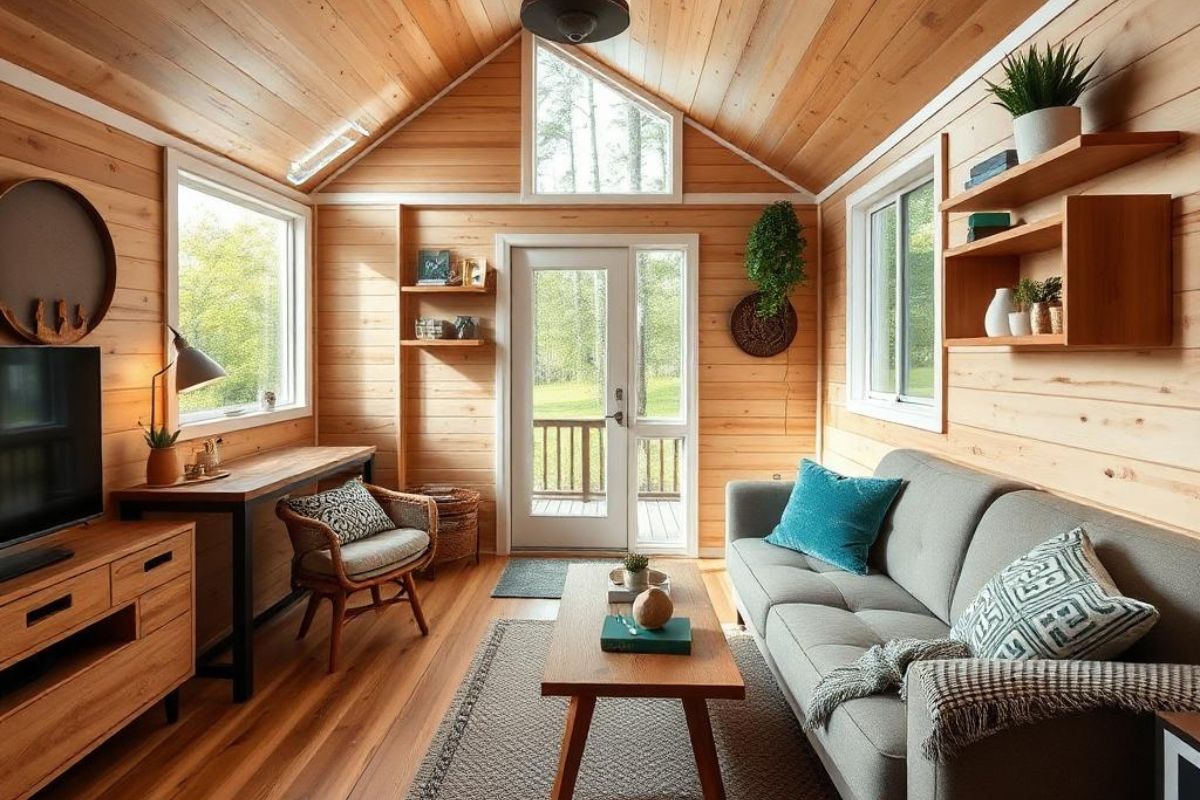If you want maximum travel flexibility and easy relocation, a camper’s lightweight build and RV status make road life simple and affordable. Tiny houses offer more space, comfort, and home-like features but require a bigger investment and face zoning challenges if you plan to stay long-term. You’ll also need a powerful truck and permits to move one. Prioritize your budget, travel needs, and lifestyle before choosing—there’s even more to reflect upon as you discover the pros and cons.
Key Takeaways
-
Tiny houses provide more space, real home amenities, and customization, while campers prioritize compact efficiency and streamlined layouts.
-
Campers offer superior travel flexibility and are easier to tow or relocate frequently than bulkier, permit-required tiny houses.
-
Tiny houses have higher upfront costs but offer long-term value; campers can be more budget-friendly, especially for used models.
-
Tiny houses allow larger off-grid systems, but campers have simpler, widely supported utilities that are easier to maintain and repair.
-
Campers face fewer zoning and legal challenges for parking, while tiny houses often require navigating strict local regulations and codes.
Space and Comfort: Comparing Living Environments
When you’re deciding between a tiny house and a camper, space and comfort become key factors. Tiny houses usually offer more square footage, higher ceilings, and the ability to customize layouts. You’ll often get a real bathroom, a full kitchen, and more storage. If you enjoy open living areas, a tiny house might feel more like a traditional home. Campers, on the other hand, prioritize efficiency and portability. You’ll find compact kitchens, convertible furniture, and multi-use spaces. Comfort depends on how much you need to spread out or entertain guests. If you prefer a cozy, streamlined setup that’s easy to maintain, a camper could suit you. Consider your daily routines and what features help you feel most at home before choosing.

Mobility and Travel Flexibility
Although both tiny houses and campers offer the freedom to change your scenery, they differ greatly in how easily you can hit the road. Campers, designed for frequent travel, are lighter and more aerodynamic, making them simple to hitch up and tow with a standard vehicle. You’ll find it easy to move between campgrounds or explore new destinations without much hassle. Tiny houses, on the other hand, are bulkier and heavier, often requiring a powerful truck and special permits to move. Relocating a tiny house isn’t as spontaneous—expect more planning and possible route restrictions. If you want maximum travel flexibility and minimal logistics, a camper’s your best bet. For more stationary living with occasional moves, a tiny house can work, but requires careful preparation.

Cost Considerations and Budget Planning
Before diving into your tiny living journey, it’s essential to lay out the financial realities of both options. Tiny houses typically require a higher upfront investment, especially if you’re building custom or using quality materials. Expect to spend anywhere from $30,000 to over $100,000, depending on size and features. In contrast, campers and RVs can start as low as $10,000 for used models, though luxury or new units can rival tiny house prices.
Factor in financing, insurance, and registration fees. Don’t forget to budget for parking or land costs, which vary widely. Outline your priorities: Are you aiming for affordability or long-term value? Set a firm budget, research thoroughly, and leave room for unexpected expenses. Careful planning now helps you avoid costly surprises later.
Utilities, Off-Grid Capabilities, and Maintenance
After mapping out your budget, it’s time to contemplate how you’ll manage everyday needs like water, electricity, and waste. Tiny houses often allow you to install larger water tanks, solar panels, and composting toilets, making off-grid living more comfortable but sometimes pricier upfront. Campers usually come with built-in systems for water and waste, but these are typically smaller and require more frequent emptying and refilling.
If you want to live off-grid for extended periods, a tiny house gives you more flexibility to customize your utilities. However, a camper’s systems are easier to maintain and repair, with parts widely available. Factor in ongoing maintenance: tiny houses may need home-like repairs, while campers require regular checks on seals, appliances, and their chassis.
Legalities, Parking, and Zoning Challenges
Maneuvering legalities, parking, and zoning is often the trickiest part of choosing between a tiny house and a camper. Tiny houses face strict zoning laws—many cities classify them as permanent dwellings, so they must meet building codes and are often restricted to specific areas or backyard ADUs. Finding legal land to park a tiny house long-term can be challenging. You’ll need to research local ordinances thoroughly and secure proper permits.
Campers, on the other hand, are usually considered recreational vehicles (RVs). RV-friendly parks, campgrounds, and some private properties allow easier parking, sometimes even for extended stays. However, you’re still limited by local regulations, HOA rules, and time restrictions. Always check municipal codes before settling anywhere, and don’t assume your vehicle is welcome everywhere.
Lifestyle Impacts and Personal Suitability
When choosing between a tiny house and a camper, you'll need to contemplate how each one fits your daily routines, travel goals, and comfort needs. If you value homelike amenities, stable living, and more space to personalize, a tiny house will suit you best. It’s ideal if you plan to stay longer in one place or work remotely. On the other hand, if flexibility, frequent travel, and ease of mobility are your priorities, a camper offers those advantages. Campers are better for spontaneous trips and adapting to changing scenery. Think about your storage needs, desire for privacy, and how much you’ll cook or entertain. Ultimately, match your choice to your lifestyle pace and how much you crave adventure versus stability.

Conclusion
Choosing between a tiny house and a camper comes down to your priorities and lifestyle. If you crave more space and a homier feel, a tiny house might suit you best. If ultimate mobility and easier travel are your goals, a camper’s the way to go. Weigh your budget, travel plans, and comfort needs. Consider legal and parking issues before deciding. Take time to reflect—your perfect mobile living option will fit both your dreams and your daily life.






Share: